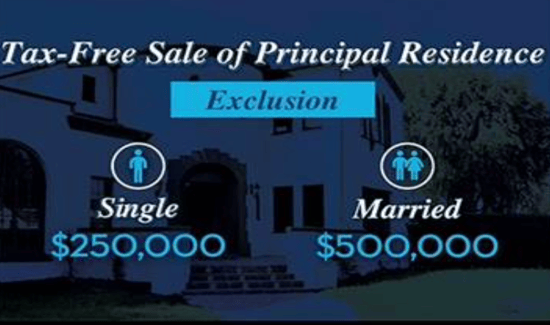In a recent blog, we addressed the topic of converting a rental property into a primary residence.
This blog triggered several questions on whether there can be tax advantages when converting a personal residence into a rental property, chiefly:
Is it possible to defer taxes on the sale of a personal residence using the 1031 Exchange?
The answer which may surprise some readers is a conditional “Yes” – provided several important steps are followed which we will generally outline in this blog post.
Rental property owners often utilize Internal Revenue Code Section 1031 (“1031 Exchange”) to defer taxes that would otherwise be due upon the sale of their business properties. The original 1031 Exchange rule dates back to 1921 and has been used by thousands of investors to defer and potentially avoid taxes and has the support of the IRS provided that specific rules are followed.
Use of the 1031 Exchange to defer taxes is limited to the sale and subsequent purchase of business properties that are deemed to be “like kind.” Fortunately, the definition of “like-kind” is very broad and exchanges from most forms of business real property into other business real properties are allowed. Examples of permitted “like-kind” exchanges can include exchanging a single-family rental to an apartment or retail store, exchanging raw land into a rental property, etc. Essentially, any investment property can be exchanged into any other investment property or other permitted ownership structure such as Delaware Statutory Trust (DST).
If you are planning the sale of an appreciated personal residence, it may be useful to see if you can benefit from the process outlined below. Note that these steps have been simplified to convey the general concepts and you should seek the advice of qualified tax and real estate professionals based on a comprehensive analysis of how this strategy may apply in your personal situation.
Step 1

The first step is to convert your personal residence into an income property. This is done by:
Moving out of the personal residence
Renting it out
Reporting income and expenses on a Schedule E rental property tax form for some period
While the IRS does not specify a minimum rental period, many tax advisors suggest a minimum holding period of 1 to 2 years prior to selling and exchanging the property.
Step 2
You obviously need to find a new place to live. Any net cash flow that you receive from the rental of your former residence can be used to either pay rent on a new residence – or make mortgage payments if you choose to buy a new residence rather than rent. In some areas of the US, e.g., San Francisco Bay area, rental rates have escalated to a point where the income from a previous residence may be more than enough to rent a smaller residence in the same area – or allow you to move to a less costly area and enjoy the added income.1
Step 3

With careful planning, a homeowner may be able to combine the potential benefits of a 1031 Exchange with a personal home tax exemption. Section 121 of the Internal Revenue Code allows a taxpayer to exclude the first $250,000 (if single) or $500,000 (if married) of the gain from the sale of a personal residence provided that the taxpayer owned and occupied the property as a principal residence for two of the five years immediately before the sale.
Therefore, if you have lived in a primary residence for a minimum of two years and then rented it for no more than three years, you may be eligible to utilize Section 121 to exclude up to $250,000/$500,000 of gain and defer further gains via a 1031 Exchange (!!!).2
Step 4
When you sell your former residence, which has now been converted into a rental property, you will need to reinvest the proceeds into “like-kind” investment properties to take advantage of a 1031 Exchange tax deferral. Finding suitable investment properties can be one of the most challenging steps in this process. Most homeowners have little experience managing rental properties and do not want the hassle of dealing with the responsibilities and liabilities of rental properties.
Investment properties structured as a Delaware Statutory Trust (DST) may be an attractive option. 3
DSTs can qualify as “like-kind” 1031 eligible replacement properties.
DSTs are managed by a trustee who is responsible for day-to-day management and who is the sole borrower on the property (if there is a loan).
DSTs can provide relatively hassle-free, stable monthly income which can be partially sheltered from taxes through deprecation and expense write-offs.
The 1031 Exchange also permits heirs or surviving spouse to inherit properties on a “stepped-up” basis meaning that the value of their inherited property is adjusted to the then current fair market value at the time of the inheritance and no taxes are owed on the previous gains. This can be a very powerful estate planning tool to maximize the transfer of wealth to one’s heirs.
Homeowners who are selling properties with large gains i.e., generally greater than $1 million are most likely to derive possible tax savings. Section 121 exclusions of $250,000/$500,000 may offset smaller gains without the need to utilize a 1031 Exchange. Rather than paying taxes on their appreciated gains, many homeowners may be able realize significantly higher income through reinvesting all/most of their appreciated taxable equity into suitable “like-kind” investment options via the steps outlined above.
For further information on tax deferral strategies or Delaware Statutory Trust options, please contact us at 866 398-1031 or send us an email at info@FirstGuardianGroup.com.
1 You do not need to collect income to qualify your former residence as a rental. At a minimum, you need to provide evidence of your efforts to rent the property e.g., list it for rent with a broker and report all related expenses on a Schedule E for at least two tax years.
2 Take care to not rent out your former residence for more than three years are you may risk losing the $250K/$500K 121 Exclusion.
3 Please read DST risk disclosure on bottom of FGG1031 blog website page









Your Comments :